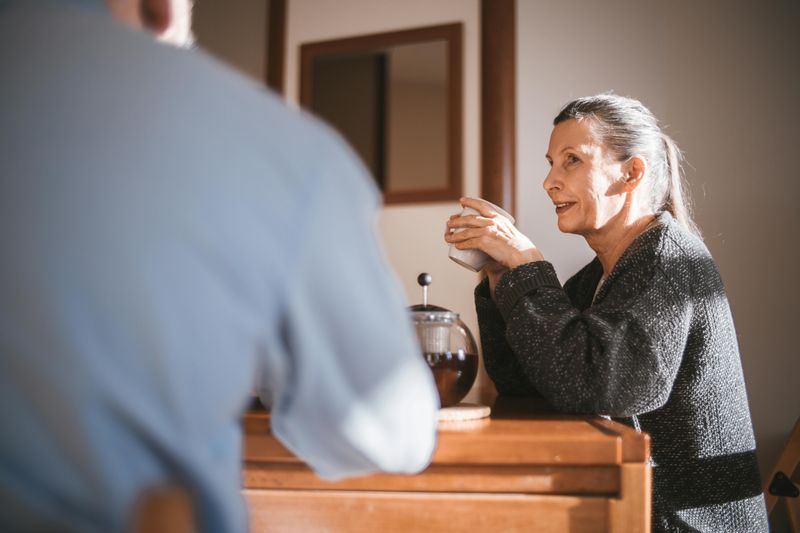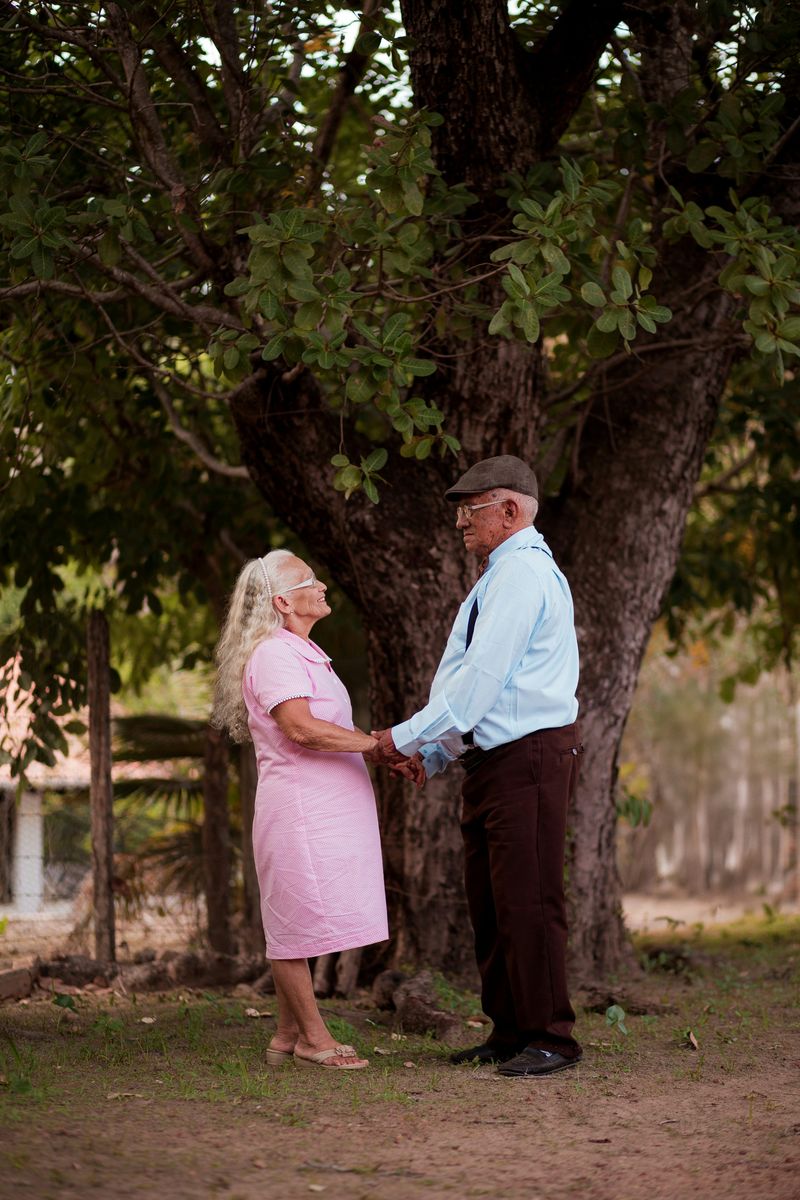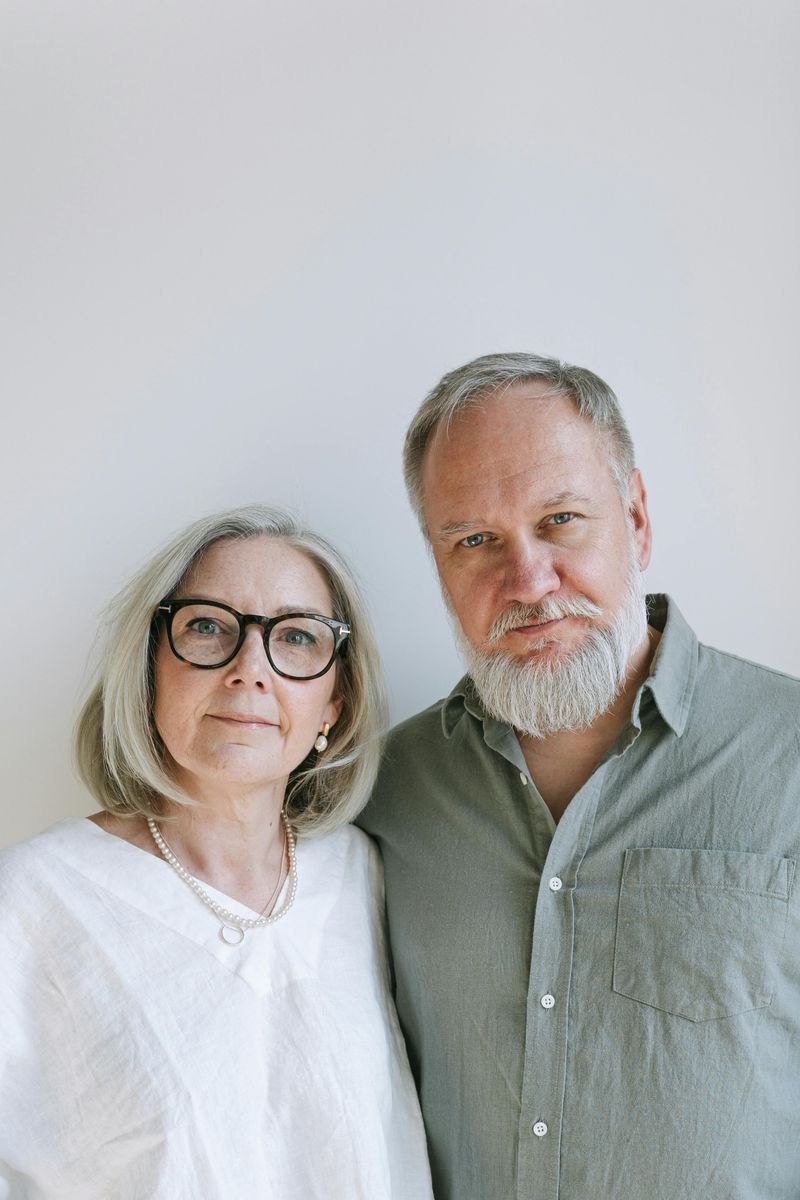Long-term relationships need care and attention, especially as couples grow older together. Sometimes, warning signs appear that shouldn’t be brushed aside. Recognizing these red flags early can help partners address problems before they become too big to fix, leading to a healthier and happier connection in later years.
1. Growing Emotional Distance

Feeling more like roommates than romantic partners signals something important is missing. When daily interactions become routine exchanges about bills or schedules without deeper connection, your bond may be weakening.
Over the years, many couples stop sharing their dreams, fears, and feelings with each other. Conversations stay shallow, focusing only on practical matters. This emotional drift doesn’t happen overnight but builds slowly until partners realize they barely know each other anymore.
Reconnecting requires intentional effort from both people. Schedule regular check-ins where you talk about feelings, not just tasks. Share what’s on your mind and heart. Ask meaningful questions and truly listen to the answers without judgment or distraction.
2. Frequent Arguments About the Same Issues

Arguments happen in every relationship, but circling back to the same fights reveals unresolved problems. Maybe you’ve argued about money management or household responsibilities for years without finding common ground.
These recurring conflicts often mask deeper issues like feeling unheard or disrespected. When the same topics trigger anger repeatedly, resentment builds up like layers of paint covering a wall. Eventually, the weight of unaddressed frustration becomes too heavy to ignore.
Breaking this cycle means digging beneath surface disagreements to understand root causes. Consider couples counseling if you can’t resolve patterns alone. Sometimes a neutral third party helps both partners feel heard and guides conversations toward actual solutions instead of blame.
3. Different Visions for Retirement or the Future

Retirement should be exciting, but conflicting dreams can create serious tension. One partner might imagine traveling the world while the other prefers staying close to home and grandchildren. These aren’t small differences when you’re planning decades ahead.
Financial priorities often clash too. Perhaps one person wants to spend savings on adventures while the other worries about medical expenses or leaving an inheritance. Without alignment, daily decisions become battlegrounds.
Finding middle ground requires honest conversations about values and fears. What drives each vision? Can you compromise by alternating years between travel and staying put? Understanding why each person wants what they want opens doors to creative solutions that honor both perspectives.
4. Lack of Physical or Intimate Connection

Physical intimacy naturally changes with age, but a complete absence signals trouble. Holding hands, hugging, and other forms of touch keep couples bonded emotionally. When all physical connection disappears, partners become isolated even while sharing a home.
Many factors affect intimacy in later years, including health issues, medications, or body image concerns. However, avoiding all affection usually points to emotional distance rather than just physical challenges. Touch communicates love and reassurance without words.
Rebuilding physical connection starts small. Try holding hands during walks or sitting close while watching television. Discuss concerns openly and consider medical help if needed. Physical therapists and doctors can address health barriers while counselors help with emotional ones.
5. Communication Breakdown

Healthy relationships depend on clear, respectful communication. When conversations consistently end in misunderstandings, someone feels attacked, or silence replaces dialogue, trust crumbles quickly.
Communication breakdown shows up in various ways. Maybe one partner shuts down during disagreements while the other grows louder. Perhaps sarcasm replaces genuine expression, or important topics get avoided entirely. Defensiveness blocks real connection because neither person feels safe being vulnerable.
Improving communication takes practice and patience. Learn to use statements starting with “I feel” instead of “You always.” Take breaks during heated moments before saying hurtful things. Listen to understand rather than waiting for your turn to speak. Small changes in how you talk can rebuild emotional safety gradually.
6. Resentment or Unforgiven Past Hurts

Carrying grudges from years ago poisons relationships slowly but surely. Past betrayals, disappointments, or hurtful words that never received proper apologies create invisible walls between partners. Resentment acts like acid, eating away at affection and respect.
Some people believe time heals all wounds, but unaddressed pain just gets buried deeper. Bringing up old hurts during new arguments shows forgiveness never truly happened. Every conflict becomes about everything wrong that ever happened instead of the current issue.
True forgiveness doesn’t mean forgetting or excusing harmful behavior. It means releasing the anger so it stops controlling your present. Professional counseling can guide difficult conversations about past wounds. Sometimes relationships need outside help to heal properly and move forward together.
7. Avoiding Time Together

Partnerships thrive on shared experiences and quality time together. When one or both partners consistently choose solo activities or time with others over being together, companionship has faded significantly.
Everyone needs personal space and individual interests, which keeps relationships healthy. But preferring almost any activity over spending time with your partner reveals something broken. Maybe conversations feel awkward, or you’ve run out of things to talk about. Perhaps being together highlights problems you’d rather avoid.
Rebuilding companionship requires rediscovering what you enjoyed together before. Start with low-pressure activities like walking or cooking together. Find new shared hobbies that interest both of you. Quality time doesn’t always mean deep conversations; sometimes just being present together rebuilds comfort and connection gradually.
8. Lack of Support for Each Other’s Growth

Personal growth doesn’t stop at retirement age. People continue developing interests, making friends, and setting goals throughout life. When a partner dismisses, mocks, or discourages these pursuits, resentment grows quickly.
Supportive relationships celebrate individual growth rather than feeling threatened by it. Maybe one person wants to take art classes or volunteer regularly, but their partner complains about time spent away. Or health goals get sabotaged through criticism or temptation. Discouragement sends the message that your interests don’t matter.
Strong partnerships encourage each person’s development while maintaining connection. Show genuine interest in your partner’s hobbies even if they don’t interest you personally. Celebrate their accomplishments and make space for individual pursuits. Supporting each other’s growth strengthens the relationship instead of competing with it.

Comments
Loading…